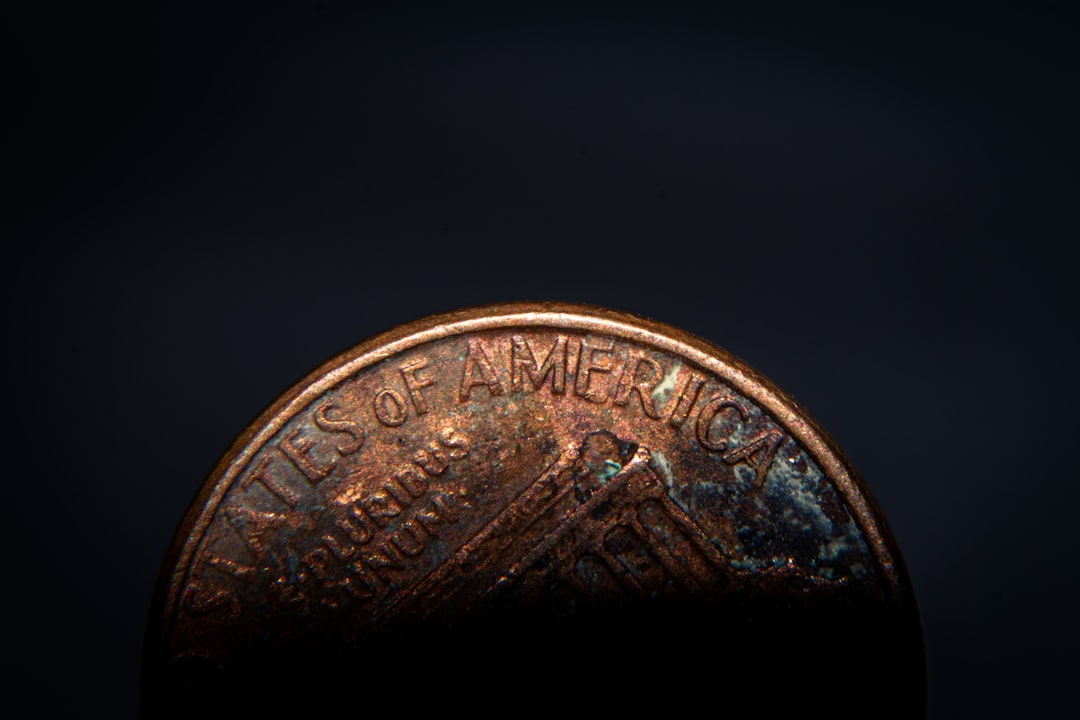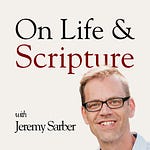
Let’s try a thought experiment. Actually, let’s try two.
First, let’s say there’s a fully functioning town somewhere. It’s like any other town. There are people. There are houses. There are places of business. There are entertainment venues. People work. People play. People buy things. The only thing different about this place is that it’s essentially cut off from the rest of the world. Imagine a giant dome over the town. It’s something similar to the town in that movie The Truman Show minus the cameras.
Now, let’s say you’ve been invited to live in this town for one year. While you’re there, you can do whatever you want with your time. If you want to get a job and work, you can. If you want to be homeless, sit around, and do nothing all year, that’s your choice. There are only two rules. First, you can’t take anything with you when you go inside. You’ll have only the clothes on your back. And second, you can’t take anything with you when you leave. What you gain in this hypothetical town, stays in this hypothetical town.
Now, if I were to ask everyone what they would do with their time, I would probably get a wide variety of answers. I thought about this scenario myself for a while. Since I can’t take anything in and everything, including entertainment, costs money, I’d have to find some kind of employment. I need to earn a little money. But I’m also thinking, I can’t take anything with me when I leave. So, I’m not saving up for retirement. I’ll have to leave behind whatever I buy, so I’m not especially interested in accumulating more than I need. Even if I wanted to live lavishly while I’m there, I don’t have time to make a lot of money. I guess I could rob a bank, but then I’d risk spending the entire year in jail.
Well, you think about what you’d do in that scenario. Keep it in the back of your mind as we move on to thought experiment number two.
Let’s say you have a very simple choice to make. First, you can remain where you are—in your current home, in your current job, at your current salary. In other words, nothing changes. Or second, you can become the richest person in the world, but you’ll have to travel back in time, roughly three thousand years. What would you do?
Now, keep in mind that becoming the richest person in the world means you can buy anything this world has to offer. But you should also keep in mind that traveling back in time means you’ll lose a few amenities. You’ll no longer have heating and air in your home. You won’t have electricity. You won’t have a refrigerator. You won’t have a phone. You won’t have a car. So, which do you choose? In fact, we could take this thought experiment a bit further. Let’s say your choice is between becoming the richest person three thousand years ago or cutting your current income in half. You’ll remain where you are, but you’ll make considerably less money.
Which do you choose?
Godly stewardship
As you think about it, let’s consider what the apostle Paul writes in 1 Timothy chapter 6. First Timothy chapter 6.
Starting in verse 3, Paul warns about false teachers who cause all kinds of problems in the church. He says, “They have an unhealthy craving for controversy and for quarrels” (1Ti 6:4). He says, “They produce envy, dissension, slander, evil suspicions, and constant friction among people who are depraved in mind and deprived of the truth” (1Ti 6:5). Then, notice the end of verse 5. They believe godliness is a means of gain. The NIV says, “They think that godliness is a means to financial gain,” which gets to the heart of the matter. Paul’s talking about charlatans who peddle religion not because they believe the truth, but because they can profit from it.
So, in verse 6, Paul shows the alternative. In verses 3 through 5, he shows us how not to be. Starting in verse 6, he shows us how things ought to be, specifically regarding money. So, I’ll read this, starting at verse 6.
But godliness with contentment is great gain, for we brought nothing into the world, and we cannot take anything out of the world. But if we have food and clothing, with these we will be content. But those who desire to be rich fall into temptation, into a snare, into many senseless and harmful desires that plunge people into ruin and destruction. For the love of money is a root of all kinds of evils. It is through this craving that some have wandered away from the faith and pierced themselves with many pangs.
But as for you, O man of God, flee these things. Pursue righteousness, godliness, faith, love, steadfastness, gentleness. Fight the good fight of the faith. Take hold of the eternal life to which you were called and about which you made the good confession in the presence of many witnesses. I charge you in the presence of God, who gives life to all things, and of Christ Jesus, who in his testimony before Pontius Pilate made the good confession, to keep the commandment unstained and free from reproach until the appearing of our Lord Jesus Christ, which he will display at the proper time—he who is the blessed and only Sovereign, the King of kings and Lord of lords, who alone has immortality, who dwells in unapproachable light, whom no one has ever seen or can see. To him be honor and eternal dominion. Amen.
As for the rich in this present age, charge them not to be haughty, nor to set their hopes on the uncertainty of riches, but on God, who richly provides us with everything to enjoy. They are to do good, to be rich in good works, to be generous and ready to share, thus storing up treasure for themselves as a good foundation for the future, so that they may take hold of that which is truly life. (1 Timothy 6:6-19)
As we’ve considered what it means to follow Jesus, we’ve talked about several things that flow into today’s subject. We’ve talked about walking by faith. We’ve talked about our need for holiness or, to use a word Paul uses in this passage, godliness. Last week, we talked about the virtues of having a good work ethic. We don’t have mere secular jobs. Whatever our occupations, they are, in fact, vocations. We are called by the Lord to serve him in our jobs. And today, I want us to think about how we follow Jesus with our money and our stuff. In short, I want us to think about godly stewardship.
I suppose you know what I mean by stewardship. A steward is someone who takes possession of something that doesn’t actually belong to them. They’re entrusted with someone else’s money or property, and they are responsible for managing it while it’s in their possession.
That’s what we see in the Parable of the Talents in Matthew 25. Jesus said:
For it will be like a man going on a journey, who called his servants and entrusted to them his property. To one he gave five talents, to another two, to another one, to each according to his ability. Then he went away. He who had received the five talents went at once and traded with them, and he made five talents more. So also he who had the two talents made two talents more. But he who had received the one talent went and dug in the ground and hid his master’s money. Now after a long time the master of those servants came and settled accounts with them. (Matthew 25:14-19)
You probably remember the rest of the story. The master rewarded those servants who made good use of his money while he was gone and punished the one who did nothing at all. He didn’t even try to make good use of it.
So, that’s what a steward is. He’s entrusted to make good use of someone else’s property while it’s in his possession.
So, having read 1 Timothy 6, let’s think back to our thought experiments and establish some principles regarding stewardship.
We are rich
Last weekend, my family and I were at the grocery store. My wife was shopping while the kids and I were just roaming around. Well, I got myself a cup of coffee from the Starbucks inside the grocery store, and one of the kids happily suggested I buy them cake pops. Now, despite the fact I just spent three dollars on a single cup of coffee, I thought to myself, You know, I just have a hard time shelling out two or three dollars for what amounts to two or three bites of cake. So, I suggested we forget about the cake pops and find a box of Little Debbie snack cakes. “I can get you a lot more than three bites for the same price.” So, I did.
It was a purely impulse buy. This is something most of us do quite often. We think, Well, it’s just a few dollars. Why not?
Did you know that almost two billion people in this world live on less than one dollar per day? For the price of a cup of coffee or a box of snack cakes, I could feed an entire family for a day. Andrew Randall says:
The richest fifth of the world’s population possesses seventy-five percent of the world’s wealth; the next two fifths control another twenty percent; which means that the remaining five percent of the world’s wealth is shared out amongst forty percent of the world’s people.
So, let’s do the math here. To keep it simple, let’s say there are only five people in the world, and the sum total of the world’s wealth is $100. That would mean one person has $75. Two people have $10 each. The remaining two people have only $2.50 each. That’s a pretty large disparity between them.
Now, my point is not to suggest that we need perfect equity in this world. In fact, that’s not what the Bible teaches. I read the Parable of the Talents. The Lord gives more to some than others. Solomon, for instance, became wealthier than anyone else in the world specifically because God gave him wealth. You may remember Solomon prayed for wisdom. And God said, “I give you also what you have not asked, both riches and honor, so that no other king shall compare with you, all your days” (1Ki 3:13).
The Bible never directs us to strive for equity. Yes, there are many commands instructing us to help those who don’t have enough, but the goal is not that everyone has the same amount. Jesus said, “You always have the poor with you,” which is not a cold-hearted, callous statement (Mt 26:11). He was simply recognizing that there will always be impoverished people. There will also be rich people. There will be people who land somewhere in between. Striving for complete equity among everyone will always be futile.
No, the reason I share these statistics about the world’s wealth is to ground us in the reality of our situation. Even if we were to claim we’re not the guy with $75—we are, by the way—we would still have four times more than the rest of the population on average. And that’s just the average. Today, the typical American household brings in about $183 a day. That’s 183 times more than two billion people in this world. So, the reality is that if we step outside of the current socio-economic bubble in which we live, we are, in fact, rich. We are extremely wealthy.
Now, if that doesn’t convince you, think back to our second thought experiment. Most of us would not want to be the richest person in the world if it meant we had to travel back in time. Why not? It’s because even the richest man in the world three thousand years ago, or even one hundred years ago, did not have the quality of life we have today. What if we went back in time and gave Solomon a choice? What if we asked him, “Solomon, would you rather keep your untold wealth or come back with us to 21st-century America and become a middle-class citizen with a climate-controlled house, TV, refrigerator, phone, car, and modern medicine?” Which sounds more appealing?
You and I are extremely wealthy, and we desperately need to recognize this because the Bible gives warning after warning about the dangers of wealth. Paul says it here.
Those who desire to be rich fall into temptation, into a snare, into many senseless and harmful desires that plunge people into ruin and destruction. For the love of money is a root of all kinds of evils. It is through this craving that some have wandered away from the faith and pierced themselves with many pangs. (1 Timothy 6:9, 10)
Now, some of us might say, “Maybe you’re right about me being rich, but I don’t desire to be rich. I’m not striving to be rich. I don’t think I have the love of money Paul is talking about here.” Well, I pray that’s true for us, but I suspect it’s not always true. I suspect we have occasionally coveted what someone else has. Despite being rich, I suspect we’ve all wished for a little more. Maybe we saw the neighbor’s new car and thought, Man, I want a new car. Maybe we saw an ad on TV or Facebook and thought, Ooh, I’d like to get that. I don’t need it, but I want it. I mean, who among us would turn down more money if our employer offered to give us a raise?
Or, think about this. What if most everything you have were taken away? What if circumstances forced you to work for minimum wage? Let’s say you can no longer afford many of the luxuries you currently enjoy. What if you’re struggling even to pay the rent or put basic food on the table? Would that cause you to desire riches? Would you crave more wealth, then?
To be clear, I’m not trying to make anyone feel guilty about what we have. I simply want us to recognize how much we do have. We are, in fact, rich. And Jesus warns:
Only with difficulty will a rich person enter the kingdom of heaven. Again I tell you, it is easier for a camel to go through the eye of a needle than for a rich person to enter the kingdom of God.(Matthew 19:23, 24)
So, that’s principle one. We are rich. We are a very wealthy people. We may not seem rich when we compare ourselves to someone like Elon Musk, but if we compare ourselves to billions of other people in the world, not to mention the wealthiest people throughout most of human history, we are incredibly rich. And we need to recognize this because (1) we should be a very thankful people, and (2) we should be a very vigilant people. We need to personally heed the Bible’s warnings about the dangers of wealth because they apply to us.
Our wealth is temporary
And here’s the second principle I want us to consider. Our wealth is temporary. Again, Paul says, “We brought nothing into the world, and we cannot take anything out of the world” (1Ti 6:7). That was our first thought experiment. When we’re made to realize our time is limited, and we can’t hold on to our wealth and possessions permanently, it helps us to see how silly it is to devote ourselves to gaining as much as possible.
If I were moving into that hypothetical town for a year, I’d certainly look for a way to support myself and whatever I intend to do while I’m there, but striving to accumulate more and more would be foolish. First, I’d probably spend more time accumulating than enjoying. And second, it would all be for nothing in the end because I can’t take anything with me. So what if I have a huge bank account, a mansion, and a fleet of luxury cars? Eventually, I’d be like Solomon, looking back and saying, “I hated all my toil in which I toil under the sun, seeing that I must leave it to the man who will come after me” (Ecc 2:18). Ultimately, my money and my possession won’t benefit me.
In verse 17, Paul says:
As for the rich in this present age, charge them not to be haughty, nor to set their hopes on the uncertainty of riches, but on God, who richly provides us with everything to enjoy. They are to do good, to be rich in good works, to be generous and ready to share, thus storing up treasure for themselves as a good foundation for the future, so that they may take hold of that which is truly life. (1 Timothy 6:17-19)
This is shockingly counter-cultural. And I’ll remind you again that Paul is essentially speaking about us. We are the rich in this present age (1Ti 6:17). And Paul tells us, first of all, don’t be haughty. Don’t be arrogant. Don’t be high-minded. Now, what would make a rich person haughty? Well, his or her wealth. Material wealth provides us with a false sense of security. That’s why so many people strive for more wealth. They think, If only I had a little more, I’d be set. I could be more comfortable. I could have less stress. I’ll be okay if something goes wrong and I have a large unexpected expense.
But is any of that true? We tend to think so, but as one who has read a lot of biographies of famous and wealthy people, I can tell you that wealthy people have just as many, if not more, problems than anyone else. Money does not buy happiness. It cannot alleviate all of our troubles. And in the end, it’s completely worthless.
Here’s what Jesus says in Luke chapter 12:
Take care, and be on your guard against all covetousness, for one’s life does not consist in the abundance of his possessions. [Then, he tells this parable.] The land of a rich man produced plentifully, and he thought to himself, “What shall I do, for I have nowhere to store my crops?” And he said, “I will do this: I will tear down my barns and build larger ones, and there I will store all my grain and my goods. And I will say to my soul, ‘Soul, you have ample goods laid up for many years; relax, eat, drink, be merry.’” But God said to him, “Fool! This night your soul is required of you, and the things you have prepared, whose will they be?” So is the one who lays up treasure for himself and is not rich toward God. (Luke 12:15-21)
Yes, when we’re trapped in what I call the fog of time, this man’s hedonism seems quite logical. “Relax, eat, drink, be merry,” he says (Lk 12:19). And why not? He has the resources to do it. Who doesn’t want to sit back and enjoy themselves? Who doesn’t want to feel a sense of security? But he forgot something quite vital. His time was limited. Eventually, his time would run out, and then what? As God says to him, “Your soul is required of you” (Lk 12:20). It’s time to give an account. In 2 Corinthians 5, Paul says, “For we must all appear before the judgment seat of Christ, so that each one may receive what is due for what he has done in the body, whether good or evil” (2Co 5:10). That day is inevitable for all of us.
So, it’s not a good idea to be haughty because of our wealth and possessions. It’s not a good idea to set our hopes on the uncertainty of riches (1Ti 6:17). It’s not a good idea because our riches are uncertain. We could lose everything tomorrow, and eventually, we will lose everything. We cannot take anything out of the world (1Ti 6:7).
But again, we often find ourselves trapped in the fog of time. That’s an expression that developed out of a study I did of Ecclesiastes years ago. In Ecclesiastes, Solomon is trying to convince primarily young people that there is something beyond time and physical space. There’s more than what we experience “under the sun,” as he calls it. Namely, there is a God who will hold us accountable, and there is a heaven. There is an eternity outside of time. But our problem is that we often aren’t thinking about anything beyond our time on earth. We trap ourselves in the fog of time, not seeing anything beyond the fog. Paul says, “Set your minds on things that are above, not on things that are on earth,” but we have a tendency to do the opposite (Col 3:2).
So, when I say we get trapped in the fog of time, what I mean is we forget about the temporary nature of our lives on this earth. We forget that at the end of the year, we have to leave the hypothetical town and take nothing with us. But more than that, we have to appear before the judgment seat of Christ and give account (2Co 5:10). Paul says we must give an account for everything done in the body, which includes what we did with our money and resources.
Listen to what Paul says in 1 Corinthians 7. He says:
The appointed time has grown very short. From now on, let those who have wives live as though they had none, and those who mourn as though they were not mourning, and those who rejoice as though they were not rejoicing, and those who buy as though they had no goods, and those who deal with the world as though they had no dealings with it. For the present form of this world is passing away. (1 Corinthians 7:29-31)
Now, that’s a little confusing. What does Paul mean? The first statement is clear enough. “The appointed time has grown very short” (1Co 7:29). We have limited time. But how do we get married yet live as though we’re unmarried? How do we buy stuff yet live as though we don’t own anything?
I remember reading a sermon from Charles Spurgeon on this passage, and it’s stuck with me ever since. He said to imagine you’re watching a play on the stage. The curtain opens, and you see a young couple in love. They get married. They raise a family. They have their ups and downs. There are seasons of mourning and seasons of rejoicing. They buy a home together, do business, and go about their lives as we all do. And just when you think you can’t be any more engrossed in the story, in the drama unfolding on stage, the curtain suddenly closes, and the stage goes dark. The show is over.
The point Paul is trying to make is that we need to recognize the temporal nature of this world. And he doesn’t mean we should merely acknowledge it with our lips and move on. Instead, we need to recognize it to the point that it shapes the way we think about everything and influences everything we do. We must learn to embrace what we have, enjoy it even, yet hold on to it loosely because it will be gone one day.
God gives us what we have
So, principle number one is that we are rich. Principle number two is that our wealth is temporary. And principle number three is this: God gives us what we have.
James writes, “Every good gift and every perfect gift is from above, coming down from the Father of lights” (Jas 1:17). We have what we have because God has given it to us. Creation itself belongs to him, and though he instructed us to use it, it still belongs to him. We are simply stewards of his creation.
The whole concept of stewardship begins with creation. Creation is celebrated not only in Genesis but throughout Scripture, especially in the Psalms, where Israel celebrated God’s ownership of the whole universe. “The earth is the LORD’s, and all its fullness, the world and those who dwell therein” (Ps. 24:1). God is the author of all things, the Creator of all things, and the owner of all things. Whatever God makes, He owns. What we own, we own as stewards who have been given gifts from God Himself. God has the ultimate ownership of all of our “possessions.” He has loaned these things to us and expects us to manage them in a way that will honor and glorify Him.
So, nothing we have really belongs to us. It’s on loan from God, if you will, so we have a tremendous obligation to use it wisely. And let’s not forget the first two principles. He’s given to us abundantly, which means we’re responsible for that much more. And we will be held accountable for what we did with it much sooner than we typically care to think about.
Be generous and ready to share
So, with these three principles in mind, what should we do to be good stewards of our money and possessions? How do we honor and glorify God with our wealth? How do we follow Jesus with what we own?
Here’s what Paul says in 1 Timothy 6:
They [that is, the rich] are to do good, to be rich in good works, to be generous and ready to share, thus storing up treasure for themselves as a good foundation for the future, so that they may take hold of that which is truly life. (1 Timothy 6:18, 19)
Be generous and ready to share (1Ti 6:18). That’s the first thing. Elsewhere, Paul says, “Whoever sows sparingly will also reap sparingly, and whoever sows bountifully will also reap bountifully. Each one must give as he has decided in his heart, not reluctantly or under compulsion, for God loves a cheerful giver” (2Co 9:6, 7). That word cheerful paints a vivid picture. It’s the same Greek word from which we get the word hilarious. Paul is talking about someone who is positively giddy to share their wealth.
Now, you’ll notice in that text that Paul doesn’t tell us how much to give. He says, “Each one must give as he has decided in his heart” (2Co 9:7). If you’re looking for an exact percentage or dollar amount, I don’t think there is one. Some like to follow the Old Testament guideline of tithing, which was ten percent. That’s what a tithe is—ten percent. But truth be told, there were three tithes in the Old Testament. Two annual tithes and one tithe every three years, so that comes out to a total of twenty-three percent, not ten percent. But I’ll let you decide whether that’s a good guideline for you to follow.
More importantly, God wants us to want to give. I read this last week, but Ephesians 4:28 says, “Let the thief no longer steal, but rather let him labor, doing honest work with his own hands, so that he may have something to share with anyone in need.” We’re not working for a paycheck merely to buy more stuff or make our lives more comfortable. The Lord gives us the means to earn money so that we have money to give. If you want to invest in the ultimate retirement plan, this is it.
The rich are to … be generous and ready to share, thus storing up treasure for themselves as a good foundation for the future, so that they may take hold of that which is truly life. (1 Timothy 6:18, 19)
By supporting sound Christian ministries and by giving to those in need, you are investing in eternal life. You are seeing beyond the fog of time. You are laying up for yourselves treasures in heaven (Mt 6:20). Jesus went as far as to say:
Sell your possessions, and give to the needy. Provide yourselves with moneybags that do not grow old, with a treasure in the heavens that does not fail, where no thief approaches and no moth destroys. For where your treasure is, there will your heart be also. (Luke 12:33, 34)
I like what Andrew Randall says:
Christ’s people, instead of running around chasing after the latest thing, are freed to live a simple life. … Don’t overload yourself with financial commitments. Don’t strain towards the highest possible standard of living that you could afford (or preferably a bit higher yet). Don’t feel obligated to buy the most expensive house your salary permits, or the nicest car, or the newest clothes. Don’t be a slave to the lifestyle the people around you have chosen.
Be free. Don’t be a slave.
To be candid, I’m a minimalist at heart. I love the idea of less. And I love the idea of buying less stuff so that we can have the freedom to give more. So, instead of investing in ourselves and our extremely temporary circumstances, we can invest in others, which ultimately means we are investing in eternal life.
So, to be a godly steward is to be a happy, generous giver. And second, to be a godly steward is to be content.
Be content
In his book Amusing Ourselves to Death, Neil Postman makes this astute observation. He writes:
The television commercial is not at all about the character of products to be consumed. It is about the character of the consumers of products. Images of movie stars and famous athletes, of serene lakes and macho fishing trips, of elegant dinners and romantic interludes, of happy families packing their station wagons for a picnic in the country [keep in mind, this book was written in the early Eighties]—these tell us nothing about the products being sold. But they tell us everything about the fears, fancies and dreams of those who might buy them. What the advertiser needs to know is not what is right about the product but what is wrong about the buyer.
Marketing is pretty easy when you know how discontent people are. Why else would people stand in line overnight for a new smartphone that isn’t much different from the one they already have? They could order the same phone online and have it two days later.
Do you remember what Paul said in Philippians chapter 4? Writing as a prisoner, he says:
I have learned in whatever situation I am to be content. I know how to be brought low, and I know how to abound. In any and every circumstance, I have learned the secret of facing plenty and hunger, abundance and need. I can do all things through him who strengthens me. (Philippians 4:11-13)
If we are in Christ, what possible reason could we have to be discontent? We should be immensely thankful for everything, however much or little God has given us. And we should use however much or little he has given us for his glory.
Our eternal treasure is Christ. What more could we want?













Following Jesus requires good stewardship